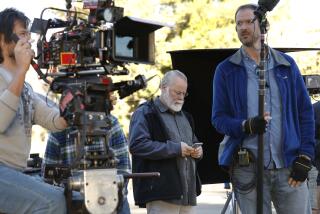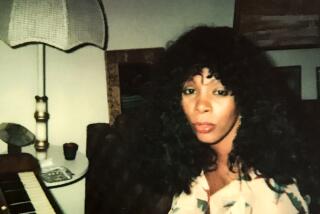Film production is shut down but documentaries are still being made. Here’s how
- Share via
Dawn Porter has been sequestered at her home on Martha’s Vineyard since mid-March. But even though she can’t leave the small Massachusetts island, production on her next documentary has yet to cease.
Porter was about three-fourths of the way through filming her nonfiction film about Pete Souza, the former chief official White House photographer, when COVID-19 started to proliferate across the U.S. But the project remains set for theatrical release by Focus Features this fall, so the director decided to take an unconventional step to get her final interview with Souza: Have him shoot it himself.
After convening with her cinematographer, Porter decided to put together a gear package for Souza. She sent him a Blackmagic camera with lenses “that look similar enough to the ones we’ve been using, so it’s not jarring, like an iPhone video.” He already has a professional microphone and a tripod, and the director intends to have him set it all up so that he can self-film while she asks him questions over Zoom.
“It’s going to look different, but we’re trying to lean into that difference, contextualize it and make it part of the scene rather than make it something it’s not,” Porter said from Martha’s Vineyard, where there are currently 16 cases of the coronavirus. “It’s a little nerve-racking, but it’s also a little bit exciting. I think if it works, we will be able to get some surprising things, having his contemporaneous feelings instead of someone looking back on this time.”
While there are still no clear answers on when and how production could resume on Hollywood’s scripted movies, many documentary filmmakers have been able to continue working. Some, like Porter, have been able to forge ahead by equipping their subjects with the proper technology. Others have shifted gears, diving into research and archival footage until they can return to the field. And a scant few are still outside filming, working with tiny crews and risking consequences for breaking stay-at-home guidelines.
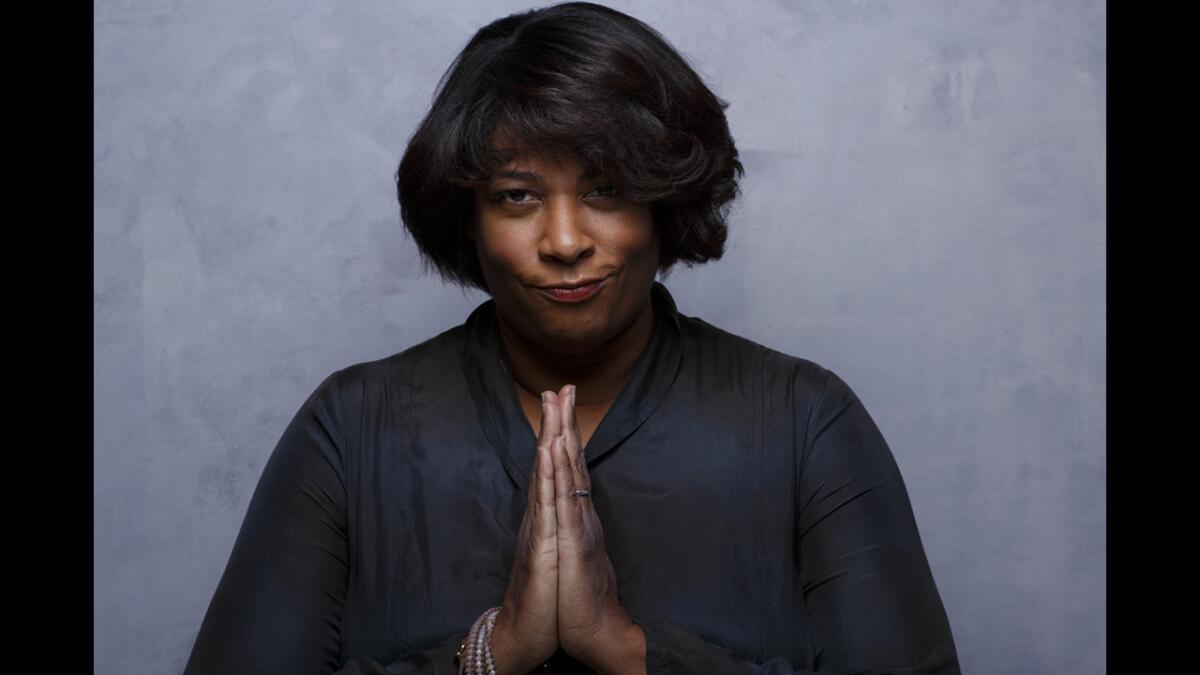
There’s also demand for new films. Porter says she’s received four calls “from great places” about whether or not she’s able to prepare to start shooting a new documentary as soon as the national lockdown eases.
“Generally, we’re trying to be optimistic that there will be a point where we can get back in the field, even if it looks different,” said Courtney Sexton, senior vice president for CNN Films, which plans to air another of Porter’s documentaries — this one about U.S. Rep. John Lewis, the Georgia Democrat — after Magnolia handles the initial theatrical/on-demand release in July. Working from a camper van in her L.A. driveway, Sexton has been taking virtual pitch meetings with documentarians and said she’s been surprised by “how many people are still out there pitching.”
“So the discussions with potential partners are: ‘If we’re gonna do this together, what does the production timeline look like if you’re not able to shoot until the fall?’” she continued. “Instead of five people going to shoot an interview, maybe there are two. Vérité filmmaking is going to be harder — it’s probably the version of the form that is the hardest to speculate about how you would make it work. But using archive, or something that’s more interview-driven — all of those things are being weighed.”
With California debating reopening during the coronavirus, what’s next for the movies? We asked Hollywood
Erin Lee Carr, who last year made two documentaries for HBO, said she’s received more calls from production companies hoping to work with her in the last month than ever before. But just before she went into quarantine in a friend’s Connecticut home, she sold a documentary to a streaming outlet. She’s also in the process of pitching a three-part episodic docuseries on a famous criminal case — something she’s done entirely via video conference. In both cases, Carr said, she’s found that emphasizing the potential of archival footage has been a big selling point.
“I think in a post-COVID environment, the amount of archive material that exists on a subject is going to be really significant,” said the director, whose “How to Fix a Drug Scandal” series debuted on Netflix this month. “I think documentaries become an escape hatch — ‘we’ll have this ready because it’s so much less expensive to make.’ Yes, I want to do original reporting — and I will — but I can build a lot without it.”
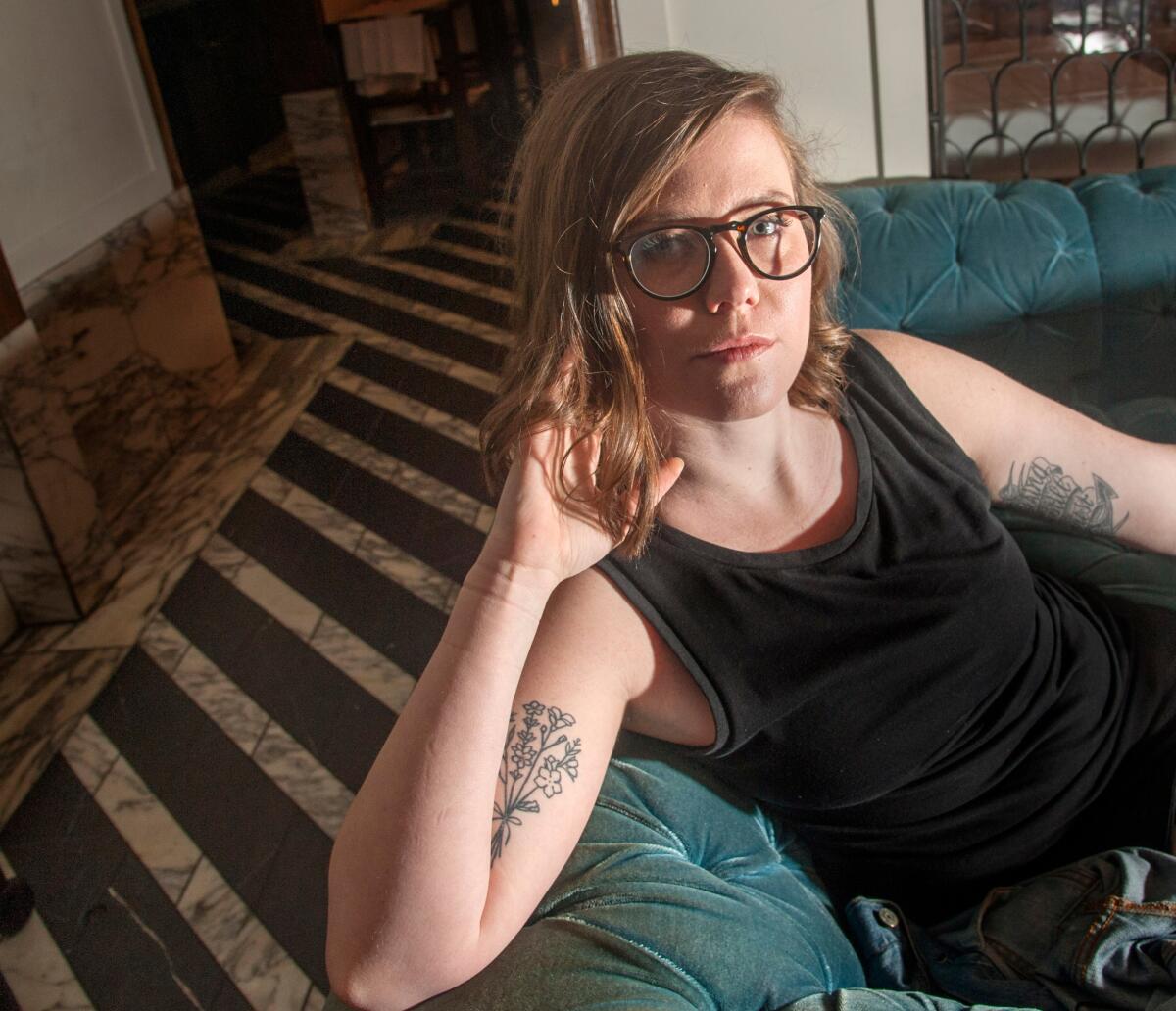
Betsy West and Julie Cohen, the directors behind 2018’s hit Ruth Bader Ginsberg documentary, have also been fielding a slew of new work calls. Though they’re working on completing their next film about Julia Child — which Sony Pictures Classics recently acquired for worldwide release in 2021 — they’re weighing how feasible launching a fresh project would be.
“Often, we spend a year or longer gathering research and planning, so unless there’s an urgent reason to get out there and shoot, you can get a lot of work done in the next six months or a year,” said West.
From different parts of New York City — she’s in Morningside Heights, Cohen is in Brooklyn — the filmmakers have continued to work remotely on the Child documentary. Each morning, they gather virtually with their team to discuss the edits that need to be accomplished that day. As the hours progress, editors will upload different segments for the directors to review and offer feedback on.
“Five years ago, I don’t know how possible this would have been, but between the conference call and video platforms, it’s doable remotely,” said Cohen. “Overall, documentary filmmaking is more flexible than narrative filmmaking. To get a narrative film within budget, everything has to be planned out to the minute. We’re used to changing things up, and coronavirus is probably stretching that to the limit.”
Porter is open to adapting too. While she’s renting the camera equipment she sent to Souza, she’s thought about ultimately purchasing the kit should the COVID-19 restrictions continue long into the future. “Sadly,” she said, “it seems with things so uncertain, this won’t be the only time to use it.”
One change Carr is considering? More audio interviews. While her filmmaking partners urged her to send her interview subjects camera equipment — like Porter did — the director felt it would be too stress-inducing.
“One network was like, ‘We have to send a little bit of lighting,’ and I said, ‘I don’t know how you send lighting to someone in the midst of COVID and ask them to set it up.’ Because we’re at the center of the epidemic, I just want to do what’s easiest. I think there will be room to do video later. And with audio, sometimes people forget you’re there. I guess I’m just trying to push myself as a filmmaker and react to this moment in time as gracefully as I can.”
One filmmaker who has been reluctant to stay locked inside is Feras Fayyad, whose “The Cave” was nominated for an Oscar in February. Though he wasn’t intending to start a new film mid-quarantine, his plans changed when he learned that a Syrian police officer whom he alleges nearly killed him was going on trial.
In March 2011 — days after Syrians took to the street calling for President Bashar Assad’s ouster, Fayyad was arrested outside of his apartment. In prison, he was brutally tortured for 18 months — beaten, electrocuted and cut.
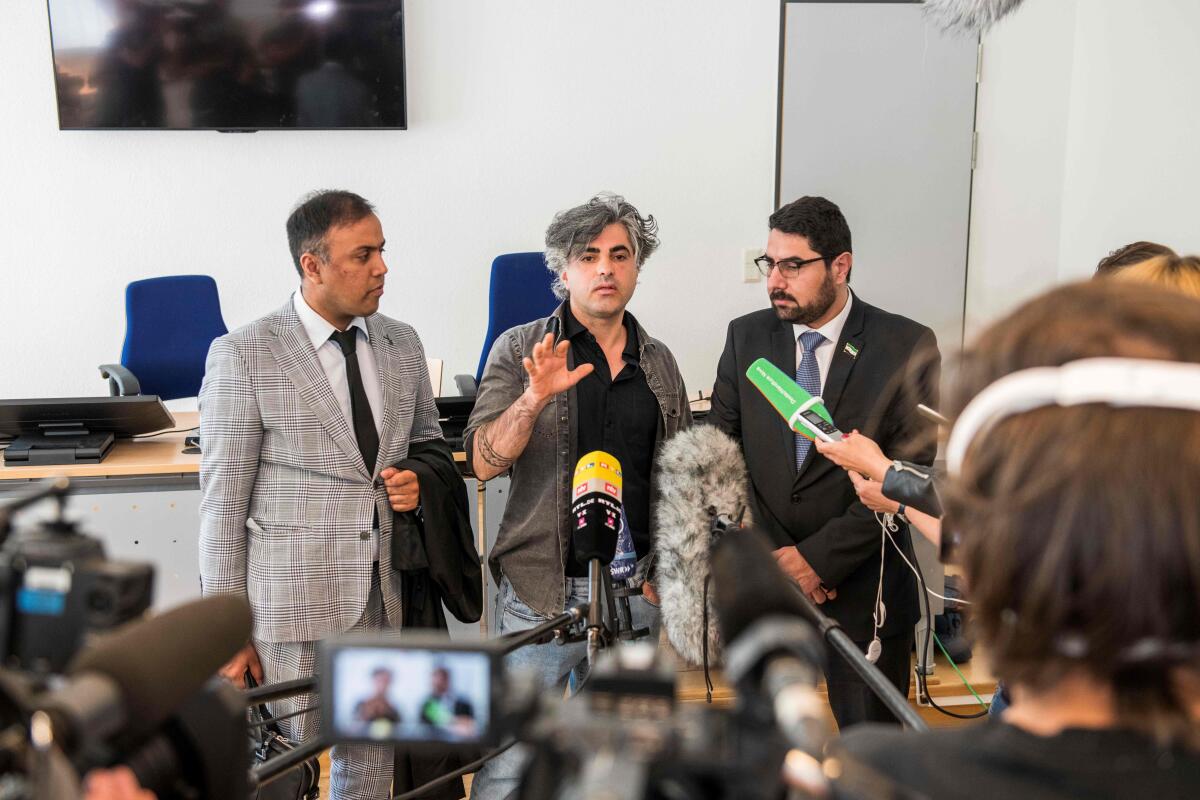
One of Fayyad’s supposed torturers sought asylum in Germany, where he is now on trial and stands accused of crimes against humanity. When Fayyad learned that the case was moving forward, he reached out to a German cinematographer and sound mixer about filming the court proceedings.
In Berlin, a ban on public gatherings of more than two people is still in place, and citizens are required to keep a five-foot distance from others. Face masks were recommended but not required, and nonessential shops and schools were preparing to open in May. Still, Fayyad and his two-man crew took to the streets, filming B-roll and interviews with lawyers working on the case.
“We’ve worked in other extreme, dangerous situations before,” Fayyad said, referring to “The Cave,” which was filmed in an underground Syrian hospital besieged by bombs. “We know it’s high-risk — especially traveling outside of Berlin and visiting people in their offices. But we believe we have to tell this story.”
On the street, Fayyad admitted, passersby treated him like “an alien.” “Their eyes were wide open and they were staring at us like we were doing something wrong or crossing the line,” he said. “But we didn’t face a police situation. The police are stopping people now and writing up fines, but maybe because we had a camera they didn’t.”
Fayyad is currently self-financing the documentary and used his cinematographer’s car and camera equipment to save money. In Koblenz, the German city where the trial is taking place, they opted for three separate hotel rooms instead of an Airbnb in case one of them falls ill with the coronavirus.
“I posted a picture of us filming on Instagram and you have no idea how many messages I got asking me what I was doing,” said Fayyad, who has already testified as a witness. “They say, ‘You’re gonna die.’ I say: ‘I’ve survived more than this.’ I’m not saying it’s not scary — it’s really scary. But I’m excited about making this and I think I need to take the risk.”
With movie theaters closed for at least a significant chunk of the year, the impact on awards season is not yet known, but several Oscar contenders will be ready to go when moviegoing resumes.
More to Read
Only good movies
Get the Indie Focus newsletter, Mark Olsen's weekly guide to the world of cinema.
You may occasionally receive promotional content from the Los Angeles Times.



